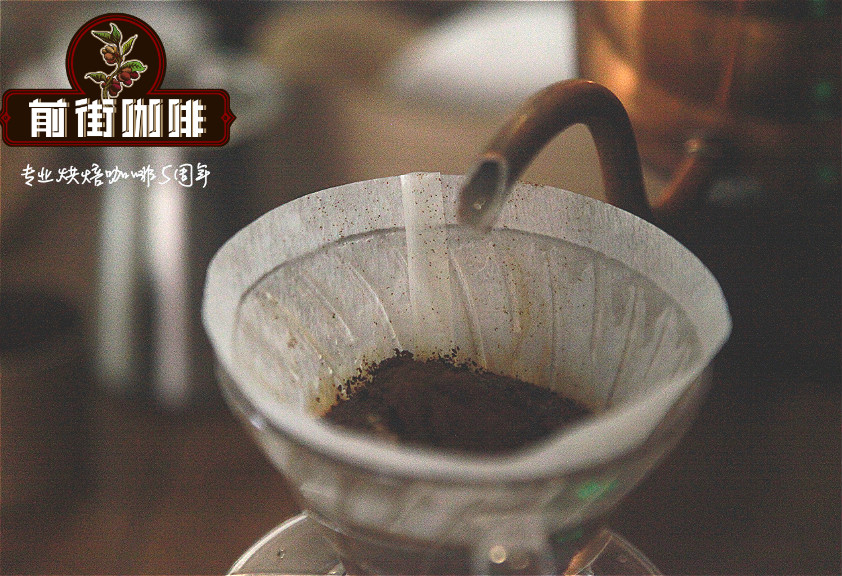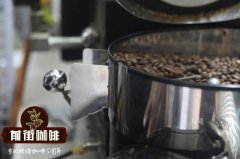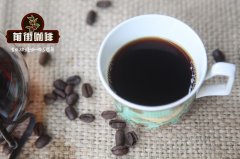Tomatoes on sticks Manor in El Salvador? Treatment of Pacamara Coffee Flavor with Water washing, Solar and Honey

Professional coffee knowledge exchange more coffee bean information please follow the coffee workshop (Wechat official account cafe_style)
El Salvador is the smallest country in Central America, although its output is much less than that of other countries, but the Pacific sea breeze and multi-volcanic environment provide El Salvador coffee farmers with unique planting advantages and diversified flavor performance. at present, the winning variety Pacamara in many cup test competitions was born in El Salvador.
Among the producing areas of El Salvador, the Santa Ana volcano, which is located 2381 meters above sea level west of the capital, has the advantage of soil quality and planting height. Santa Ana volcano, which is still active, erupted in 2005. Although it caused heavy economic losses and some casualties to local coffee farmers in that year, the volcanic ash with organic matter later provided a very rich source of nutrients for the local soil, and Santa Ana is still recognized as one of the best producing areas in El Salvador.
First of all, the landowner recounts that he came to the land in 1543 with the Spanish colonization, and Apaneca means "Rivers of Wind" in the local aboriginal language. In this romantic land, located in the central volcanic belt of ilamatepeque in El Salvador, the manor is surrounded by fertile volcanic soil. The Bourbon bourbon species, which had been planted on the farm since the beginning of Arabica, began to grow PACAMARA in 1991.
Tomatoes on sticks Manor is surrounded by natural primeval forests, and the sky often flies over the seasonal migratory birds from the north chirping among shade trees and coffee trees. With the footsteps of Ricardo, the owner of the manor, he came to a small valley full of fantasy trips, and there were often fragments of glass on the ground. In 1964, the owner of the manor stood on the "stone" of the manor, and suddenly found that the stone looked a bit like a big stone sculpture on his forehead. In 1965Oct, he began to excavate formally, and he was surprised to find that it looked like a human stone carving. Then, from 1965 to 1977, the thousand-year-old Mayan city was excavated one after another, and the manor donated 1200 pieces of ancient artifacts found here to the Salvadoran Museum of History. After 1977, Stanly studied archaeology and continued to explore the Mayan city in this beautiful manor. Up to now, there are still many wonderful past still under exploration. The representative smiling face gourd-like guardian stone was dug up in the manor, so it is also called Tomatoes on sticks.
In 1991, the third generation of landowners began experimenting with PACAMARA, which was developed historically by the Salvadoran Coffee Laboratory in 1957. At that time, some areas of the manor were tried to be planted by grafting, which enabled Tomatoes on sticks's manor to grow steadily under the condition of strong leaf rust between 2012 and 2015. Today, with a hundred-year-old planting technology, the farm grows PACAMARA in a good environment, and uses mountain spring water to make traditional washing, honey treatment and exquisite sunburn in El Salvador during the harvest season. The coffee from Tomatoes on sticks Manor is delicately processed with PACAMARA fruit notes and full of sweetness.
Coffee features:
Zone: Apaneca, El Salvdor
Hai Postscript: 1200Mutual 1700m
Variety: PACAMRA
Treatment: washing, sun exposure, honey treatment
Flavor: sun: honey fruit fragrance, litchi, red plum, pineapple, dried peach, sweet raisin sucrose, red wine. Honey treatment of Huigan fruit tea: aroma of fruit and nectar, sweet peach, sweet grape, red persimmon, honey peach wine, honey sweet, Huigan is citrus tea
Water washing: sweet flowers, peaches, white peaches, sweet oranges, smooth taste, sweet back
END
Important Notice :
前街咖啡 FrontStreet Coffee has moved to new addredd:
FrontStreet Coffee Address: 315,Donghua East Road,GuangZhou
Tel:020 38364473
- Prev

COE28 Storm Manor in Guatemala | Flavor characteristics of Guatemalan washed coffee beans
Professional coffee knowledge exchange more coffee bean information please follow Coffee Workshop (Wechat official account cafe_style) Guadi is a nickname for Guatemala. The Mayan town sits on top of 37 volcanoes, two of which erupted in 2010. Coupled with frequent tornadoes and natural disasters everywhere, it is truly dangerous.
- Next

The kind of single coffee Daquan coffee beans are bitter which kind of coffee beans are not bitter and which are good to drink or not?
Professional coffee knowledge exchange more coffee bean information Please pay attention to the coffee workshop (Wechat official account cafe_style) coffee beans usually produced by a single area called single coffee, there are individual types of coffee, Blue Mountain Coffee he produces in the Blue Mountains in Jamaica. Its caffeine content is very low, less than half of the coffee from other producing areas, and the unique flavor and teeth of Blue Mountain Coffee.
Related
- Does Rose Summer choose Blue, Green or Red? Detailed explanation of Rose Summer Coffee plots and Classification in Panamanian Jade Manor
- What is the difference between the origin, producing area, processing plant, cooperative and manor of coffee beans?
- How fine does the espresso powder fit? how to grind the espresso?
- Sca coffee roasting degree color card coffee roasting degree 8 roasting color values what do you mean?
- The practice of lattes: how to make lattes at home
- Introduction to Indonesian Fine Coffee beans-- Java Coffee producing area of Indonesian Arabica Coffee
- How much will the flavor of light and medium roasted rose summer be expressed? What baking level is rose summer suitable for?
- Introduction to the characteristics of washing, sun-drying or wet-planing coffee commonly used in Mantenin, Indonesia
- Price characteristics of Arabica Coffee Bean Starbucks introduction to Manning Coffee Bean Taste producing area Variety Manor
- What is the authentic Yega flavor? What are the flavor characteristics of the really excellent Yejasuffi coffee beans?

